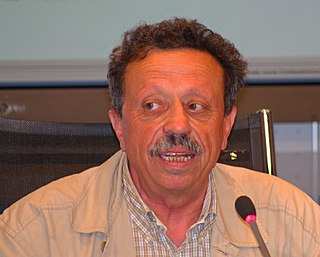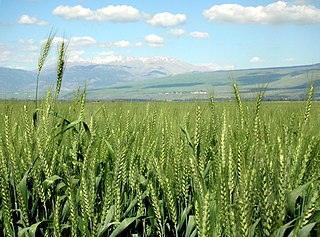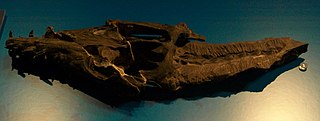Related Research Articles

David is described in the Hebrew Bible as the third king of the United Monarchy of Israel and Judah, becoming king after Ish-bosheth. In the Books of Samuel, David is a young shepherd who gains fame first as a musician and later by killing the enemy champion Goliath. He becomes a favorite of King Saul and a close friend of Saul's son Jonathan. Worried that David is trying to take his throne, Saul turns on David. After Saul and Jonathan are killed in battle, David is anointed as King. David conquers Jerusalem, taking the Ark of the Covenant into the city, and establishing the kingdom founded by Saul.
The Protestant Church in the Netherlands is the largest Protestant denomination in the Netherlands, being both Reformed (Calvinist) and Lutheran.

The Negev is a desert and semidesert region of southern Israel. The region's largest city and administrative capital is Beersheba, in the north. At its southern end is the Gulf of Aqaba and the resort city of Eilat. It contains several development towns, including Dimona, Arad and Mitzpe Ramon, as well as a number of small Bedouin towns, including Rahat and Tel as-Sabi and Lakyah. There are also several kibbutzim, including Revivim and Sde Boker; the latter became the home of Israel's first Prime Minister, David Ben-Gurion, after his retirement from politics.

Morchella, the true morels, is a genus of edible sac fungi closely related to anatomically simpler cup fungi in the order Pezizales. These distinctive fungi have a honeycomb appearance due to the network of ridges with pits composing their caps. Morels are prized by gourmet cooks, particularly in French cuisine. Due to difficulties in cultivation, commercial harvesting of wild morels has become a multimillion-dollar industry in the temperate Northern Hemisphere, in particular North America, Turkey, China, the Himalayas, India, and Pakistan, where these highly prized fungi are found in abundance.

The eyebrowed thrush is a member of the thrush family Turdidae. The scientific name comes from Latin Turdus, "thrush" and obscurus "dark".
Jews and Judaism in China are predominantly composed of Sephardi Jews and their descendants. Other Jewish ethnic divisions are also represented, including Ashkenazi Jews, Mizrahi Jews and a number of converts.

Israel Shamir, also known by the names Robert David, Vassili Krasevsky, Jöran Jermas and Adam Ermash, is a Swedish writer and journalist, known for promoting antisemitism and Holocaust denial.

The Hula Valley is an agricultural region in northern Israel with abundant fresh water, which used to be Lake Hula, prior to its draining. It is a major stopover for birds migrating along the Syrian-African Rift Valley between Africa, Europe, and Asia.

Blanford's fox is a small fox native to the Middle East and Central Asia. It is listed as Least Concern on the IUCN Red List.

Shrubland, scrubland, scrub, brush, or bush is a plant community characterized by vegetation dominated by shrubs, often also including grasses, herbs, and geophytes. Shrubland may either occur naturally or be the result of human activity. It may be the mature vegetation type in a particular region and remain stable over time, or a transitional community that occurs temporarily as the result of a disturbance, such as fire. A stable state may be maintained by regular natural disturbance such as fire or browsing. Shrubland may be unsuitable for human habitation because of the danger of fire. The term was coined in 1903.

Munich is a 2005 historical action thriller film produced and directed by Steven Spielberg, co-written by Tony Kushner and Eric Roth. It is based on the 1984 book Vengeance by George Jonas, an account of Operation Wrath of God, the Israeli government's secret retaliation against the Palestine Liberation Organization after the Munich massacre at the 1972 Summer Olympics.

Barbastella is a genus of vespertilionid bats. There are five described species in this genus, of which one is extinct.

China–Israel relations are the diplomatic, economic, cultural, military ties between the People's Republic of China and the State of Israel.

Augustasaurus is a genus of aquatic sauropterygian reptile belonging to the Pistosauria, a clade containing plesiosaurs and their close relatives. Pistosaurus and Augustasaurus were thought to be the only known members of the family Pistosauridae. However, some recent cladistic analyses found Augustasaurus to be a more advanced pistosaur, as a sister group of the order Plesiosauria. The only known species of Augustasaurus is Augustasaurus hagdorni, which was first described in 1997.
Dysgonia torrida, the jigsaw, is a moth of the family Erebidae. The species was first described by Achille Guenée in 1852. It is found from the tropical and subtropical areas of Africa to Spain, southern Italy, Greece, Syria, Israel, Iran, Uzbekistan towards India, Sri Lanka and Myanmar.

Anahita is a genus of wandering spiders first described by Ferdinand Karsch in 1879.
Dentitegumia is a monotypic snout moth genus described by Hans Georg Amsel in 1961. Its only species, Dentitegumia nigrigranella, described by Émile Louis Ragonot in 1890, is found in Israel.

Misliya cave, also known as the "Brotzen Cave" after Fritz Brotzen who first described it in 1927, is a collapsed cave at Mount Carmel, Israel, containing archaeological layers from the Lower Paleolithic and Middle Paleolithic periods. The site is significant in paleoanthropology for the discovery of what were, from 2018 to 2019, considered to be the earliest known remains attributed to Homo sapiens outside of Africa at that time, dated to 185,000 years ago. Prior to this, since the time of its discovery in 2011, Jebel Faya in the U.A.E. was considered to be the oldest settlement of anatomically modern humans outside of Africa, with its deepest assemblage being dated to 125,000 years ago.
References
- 1 2 "GlobIZ search". Global Information System on Pyraloidea. Retrieved 2011-10-07.
- ↑ "An Annotated List with New Records of Lepidoptera Associated with Forest and Ornamental Trees and Shrubs in Israel" (PDF). Retrieved 2011-10-07.
| This Phycitinae-related article is a stub. You can help Wikipedia by expanding it. |